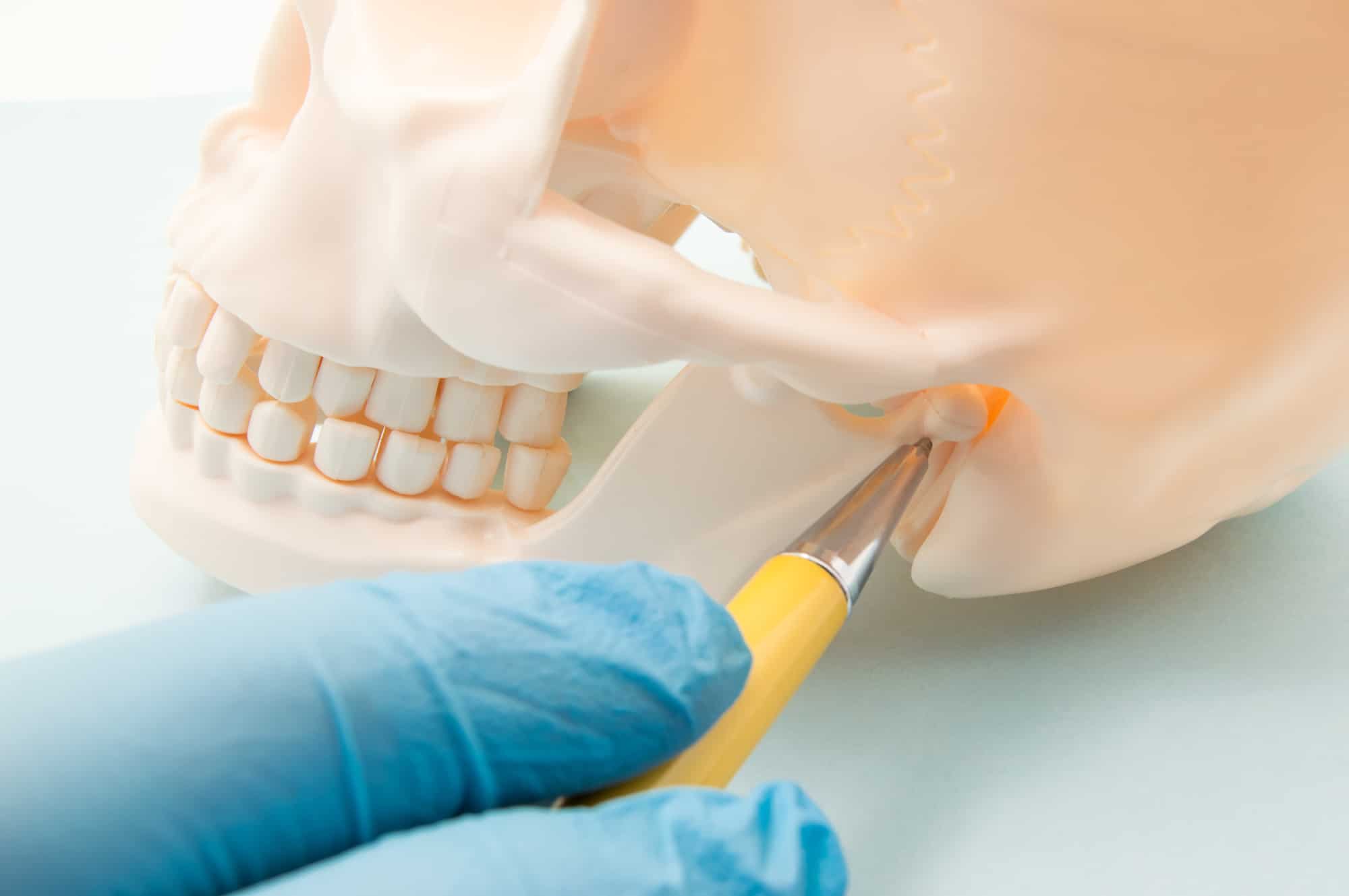If you suffer from temporomandibular joint dysfunction, you're not alone. In the U.S., around 12 percent of the population has this. Some various causes and symptoms come along with TMJ disorder. Knowing how to get effective treatment makes a difference when you are in pain. Some people have never heard of TMJ disorder and only know they have pain in their jaw every day. Keep on reading to find out about TMJ treatment in Raleigh.
TMJ Disorder
Temporomandibular joint dysfunction is a disorder that affects the jawbone. It causes pain in the muscles that control jaw movement and in the entire jaw area, including the joint.
The temporomandibular joint sits at the base of your skull. It is on the side of the head, not far from your ear. It connects the lower jaw, also called the mandible, to the bones of your skull. That joint is responsible for helping you chew. It acts as a hinge and lets you move your jaw up and down and side to side. TMJ disorder affects anything related to the temporomandibular joint. Patients feel pain in the jawline area and sometimes have trouble moving the joint.
For some people, temporomandibular joint dysfunction only lasts for a short time. The timeframe could go for months or years. Some people live with TMJ disorder forever, and they stay in constant discomfort in the jaw area.
What Causes TMJ?
Knowing what causes TMJ could be hard to diagnose. It may be a combination of things. Some people have had jaw injuries that cause the pain to begin. Broken jawbones from accidents have started TMJ disorder for some. Trauma to this area can also affect the muscles around the bone and cause an achy feeling from time to time.
For some people, it could be a history of genetic issues with TMJ. Some suffer from arthritis in the jaw, which can produce severe pain. Different types of arthritis exist, so the kind you have may affect your pain level. With osteoarthritis, the disease destroys soft and hard tissues around the jaw. The structure of the jawline changes, causing pain even when not moving your jaw.
In rheumatoid arthritis, your immune system will attack the tissue surrounding the jaw joint. It keeps your jaw inflamed and in pain. Psoriatic arthritis also keeps the joints inflamed. That type of arthritis could be genetic. The pain may come and go in flares, so you're not always in pain, but when you are in can feel severe.
Symptoms of TMJ
Along with joint pain, people who have TMJ disorder may experience other symptoms as well. Some people have facial pain all over, much like when they get a sinus infection. People mention feeling or hearing their jaw making a cracking or clicking sound when they chew. They may feel pain when chewing but not at other times. You can get discomfort around your ears. Some people think they have an ear infection when the pain is coming from the TMJ disorder. One of the things people mention that lets them know they need treatment is when their jaw locks. This can happen when chewing or yawning. Some have said they can't close their mouths for several minutes when that happens.
If you have TMJ, you may get frequent headaches. The pain from grinding your teeth could cause migraines in some instances. The joint muscles in the temporomandibular area can become inflamed, sometimes generating tremendous pain. Pain makes you tense up, and when that happens, you may clench your teeth. That pain sends signals to other areas, causing severe headaches for some. The tension can also cause discomfort in your neck and shoulder areas.
In some cases, the facial area can swell, which means the joint muscles and tissues may be inflamed.
Available Treatments
If you suffer from temporomandibular joint dysfunction, you don't have to stay in pain. There are different treatments that could get you back to leading a healthy life.
You can get TMJ treatments that utilize ultrasound, cold laser, and low-level photobiomodulation. Along with that, you'll get manual muscle therapy. These technologies use a whole-body process to treat TMJ without painful procedures. Some people get temporomandibular joint implants. The procedure uses artificial materials to replace the TMJ joint causing pain. That type of surgery is a last resort for most and gets used when other treatments have not worked. There are surgeries to reconstruct the joints. Sometimes, a bone graft from the patient is used to replace the mandibular joint. That type of surgery can cause a great deal of pain, so less invasive measures are used first.
TMJ treatments can consist of exercises that strengthen the jawline muscles. They use combinations of relaxation and stretching. These can reduce the clicking and pain people feel when chewing or talking. Anti-inflammatory medicines can help the pain caused by TMJ. Those are not advised for extended periods because they can cause other health problems. Mouthguards can help people avoid clenching and grinding their teeth when they sleep, reducing the pressure on their jaw muscles and joints.
TMJ Treatment in Raleigh
Knowing what causes TMJ can get complicated. Other issues can mimic TMJ disorder, so you need to see a specialist and determine what causes the pain. An orthodontist knows how to treat temporomandibular joint dysfunction. Since this is one of the most used joints in your body, you want it to work well and without pain. If you're having jaw pain that doesn't go away, you need to see someone experienced with TMJ disorder. If you're looking for TMJ treatment in Raleigh, we can help! Schedule a free consultation today and find out more about our non-invasive procedures for TMJ.
